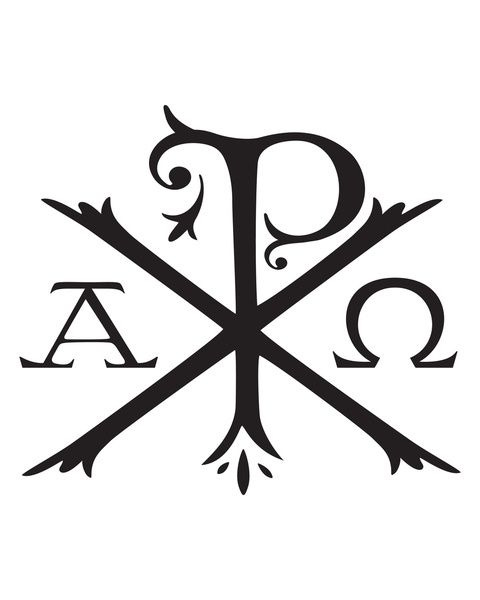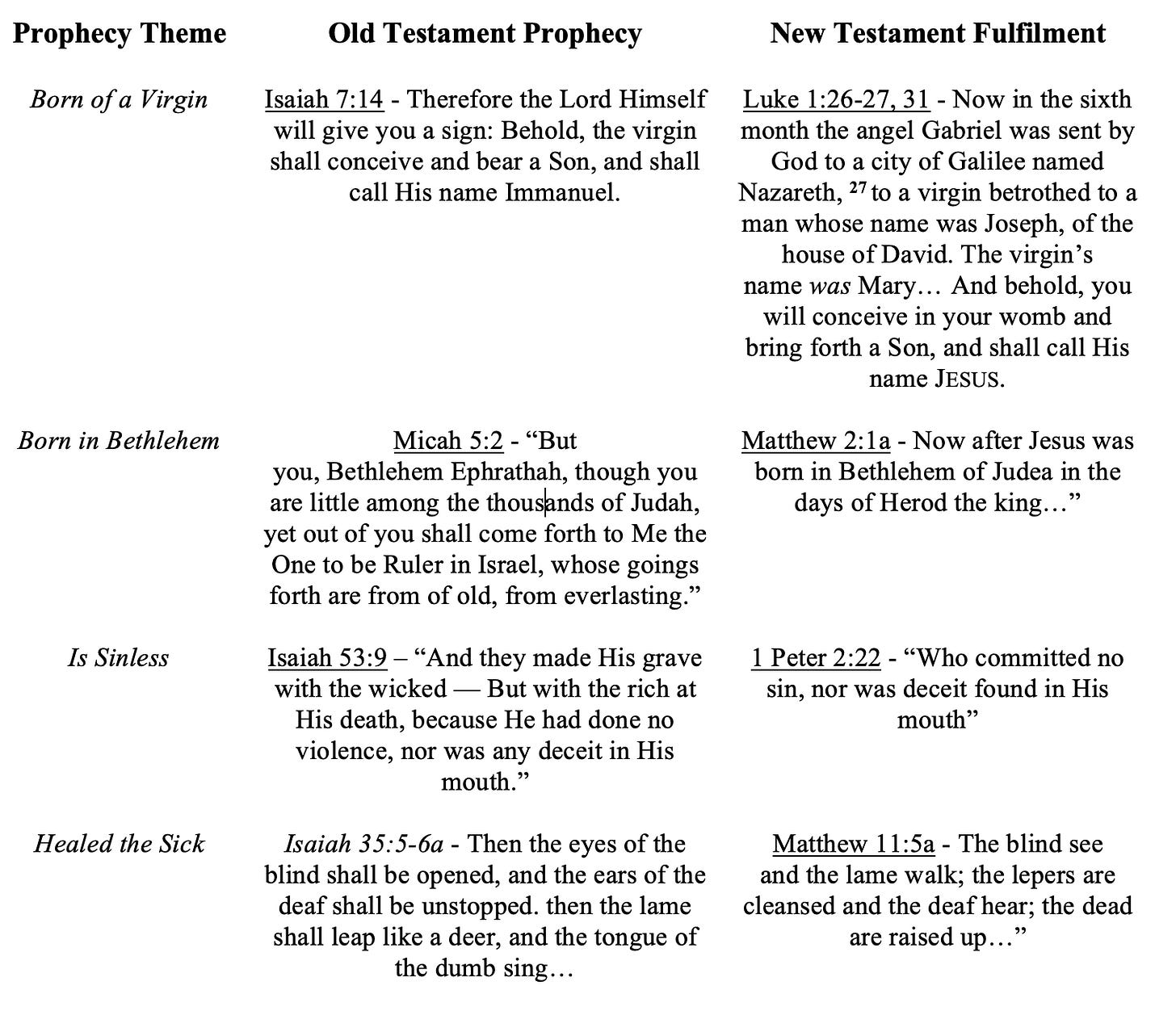Jesus as the Messiah
Overview:
The foundation of the claim that Jesus was the Messiah lay in the 300 prophetic scriptures, that are found in the Old Testament, which was written over a period of 1000 years. The odds of a single person in a relatively short period of human history fulfilling just a handful of those prophesies is astronomically high – but to fulfil all 300 – that would take something supernatural. Even Jesus himself proclaimed that all the things that had happened to him, or were about to were the fulfilment of ancient prophecies – as seen in Matt 26:56.
Matthew 26:56 “But all this was done that the Scriptures of the prophets might be fulfilled.”This is one of the Bible’s beauty, the consistent interwoven flow of God’s work in humanity, and His desire to see the relationship restored to what it was in the Garden of Eden.
Some of the most significant prophecies of the Messiah, that Jesus fulfilled are found in the table below:
One significant perspective of Jesus’ messiahship, was that he forgave the sins of others, and that his death and resurrection would be the catalyst, the final blood sacrifice for the salvation of the whole world, should they choose to accept that precious gift. Even from the start of his ministry, Jesus’ mission to forgive the sins of Israel and the world were clearly stated – such as in John 1:29 where John the Baptist declares…
John 1:29 “The next day John saw Jesus coming toward him, and said, “Behold! The Lamb of God who takes away the sin of the world!”Jesus would forgive many of their sins, even as they came to him for healing, or when demons have been cast out of them. He would meet them at their place of existence, and bless them with the most precious gift – that of his forgiveness. The Pharisees used this against Jesus, declaring that only God alone can forgive sins – as in Luke 5:21. This would be one of the main reasons they had his arrested, tried and crucified.
Luke 5:21 “And the scribes and the Pharisees began to reason, saying, “Who is this who speaks blasphemies? Who can forgive sins but God alone?”The declarations of people about the Messianic nature of Jesus also adds credence to that notion. Some like Peter declared it boldly - while others - like the centurion at his crucifixion, had to witness the horror of his death to declare it as truth.
Matthew 16:15-16 He said to them, “But who do you say that I am?” Simon Peter answered and said, “You are the Christ, the Son of the living God.”
Matthew 27:54: “So when the centurion and those with him, who were guarding Jesus, saw the earthquake and the things that had happened, they feared greatly, saying, “Truly this was the Son of God!”
The interesting thing to note it that Jesus almost never referred to himself as the Messiah – this is mainly because the Jews at the time were expecting a Davidic warrior king to come back to restore and renew the Kingdom of Israel. The Jewish people had an earthly perspective to the coming Messiah – while Jesus held firm to the Father’s heavenly perspective, of a Messiah who came to restore the eternal relationship humanity had with God, and in turn then would re-establish Israel and those Gentiles grafted into the vine.
When you combine the miracles Jesus performed, the forgiveness of sins, that he died and rose again, that he fulfilled all 300 or more Old Testament prophecies, that he ascended to heaven to re-unite with the Heavenly Father and all of the people who declared him to be the Messiah – the weight of evidence for Jesus as the Messiah for both Jew and Gentile alike is overwhelming.
Such evidentiary weight served to justify our faith in Jesus as our Lord and Saviour – that our faith is built on the premise of loving Jesus with all our heart (emotions), mind (thoughts and wisdom) and soul (with our spirit) – as in Matthew 22:37.
Matt 22:37 “Jesus said to him, ‘You shall love the LORD your God with all your heart, with all your soul, and with all your mind.”Next Session: Jesus’ Ministry in the Gospels







